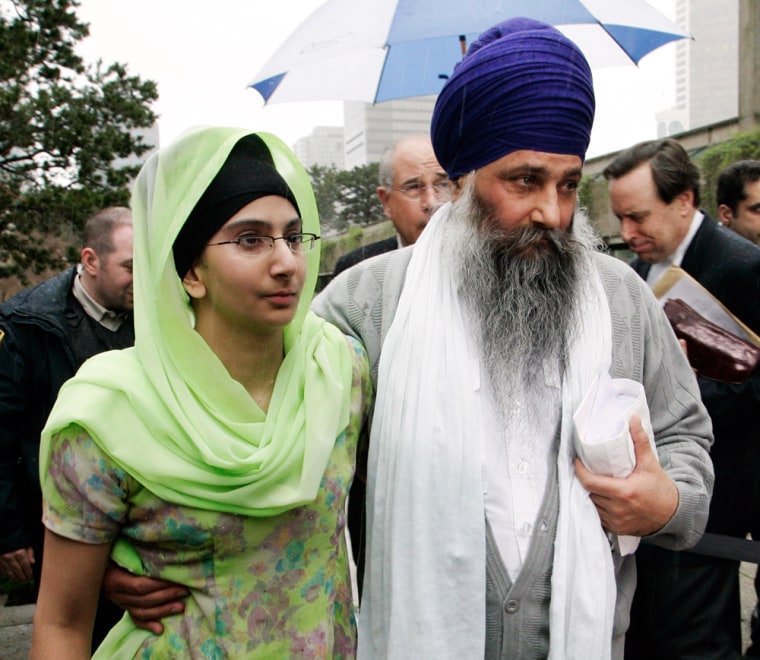After a two-year trial, a Canadian judge on Wednesday acquitted two Indian-born Sikhs of murder and other charges in the deaths of 331 people killed when bombs exploded aboard an Air India plane over the Atlantic and at a Tokyo airport 20 years ago.
British Columbia Supreme Court Justice Ian Josephson said the prosecution’s key witnesses were not credible. The bombings were the deadliest terrorist strike before the Sept. 11 attacks and were Canada’s worst case of mass murder.
Spectators in the courtroom, including dozens of victims’ relatives, gasped when the verdicts were read. Some started wailing.
“Why did they even have this trial?” said Rattan Singh Kalsi, 75, whose daughter was aboard the Air India plane. “We were suffering anyway. Now we will suffer more.”
The defendants — Ripudaman Singh Malik, 58, and Ajaib Singh Bagri, 55 — were immediately removed from the courtroom and then released. Malik sat impassively while the verdict was read, wiping his beard with a scarf. Supporters slapped his son on the back.
Air India Flight 182 from Montreal to London, originating in Vancouver, exploded and crashed off Ireland on June 23, 1985. All 329 people on board, mostly Canadians, were killed.
An hour earlier, a bomb in baggage intended for another Air India flight exploded in the Narita airport, killing two baggage handlers.
Revenge cited as motive
Prosecutor Robert Wright maintained that the bombing was revenge by Sikh separatists for a deadly 1984 raid by Indian forces on the Golden Temple at Amritsar, the holiest site in their religion.
Bagri, a “militant Sikh terrorist,” gave a speech in New York that urged the killing of Hindus in the drive for a separate Sikh state of Khalistan, Wright said.
In a July 21, 1984, speech at Madison Square Garden, Bagri said: “Until we kill 50,000 Hindus, we will not rest.”
In their opening statements starting April 28, 2003, lawyers for Bagri and Malik said prosecutors had a weak case that hinged on the testimony of three star witnesses and bomb experts.
Josephson dismissed the credibility of prosecution witnesses, including a woman who said Malik told her of a plan to smuggle two bombs on flights from Vancouver that would be transferred to two Air India jets. Reporters were barred from identifying any of the witnesses.
Investigators believe the Air India bombing was masterminded by Talwinder Singh Parmar, leader of the extremist Babbar Khalsa group that advocates creating a Sikh state called Khalistan in India’s Punjab region. Parmar was killed by Indian police in 1992.
Background on defendants
Malik worked as a taxi driver after arriving in Canada from India in 1972 and built up business holdings, becoming a driving force behind the Vancouver-area Khalsa Credit Union with assets of more than $1 million.
Bagri arrived in Canada in 1968, according to court documents, and was a mill worker.
A third man in the case, alleged bomb-maker Inderjit Singh Reyat, pleaded guilty Feb. 10 to one count of manslaughter and was sentenced to five years in jail.
After Reyat’s guilty plea, Malik and Bagri chose a trial by judge. Reyat previously served a 10-year sentence for his 1991 conviction in the Tokyo airport bombing.
A fourth man, former Vancouver Sikh Temple president Hardial Singh Johal, was arrested but not charged in the case. He has since died.
